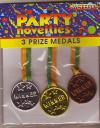I think I’ve finally recovered from our Book Fair week; the whole school had directed a lot of energy at our annual Grandparents’ Day. Although my only contact with the grandparents this year was in the crush of the Book Fair, there were numerous events throughout the school, all well attended. Once again many of the staff observed that, these days, most of us are older than the average grandparent of a primary school student. Sigh…
As I was attempting to close up the Book Fair cabinets on Thursday morning, I had a last-minute request from a parent who’d been waiting on an automated payment to be made into her account so she could buy some books. Luckily, I’d mastered the art of EFTPOS this year, although the transaction ate into my morning preparations!
At the exact same time:
* a tech guy arrived to re-image two testy OASIS Enquiry kiosk terminals
* the locksmith turned up to repair both main entry doors to the library (they both jammed at the same time yesterday, effectively locking me out of the Book Fair (my Principal congratulated me on my excellent security practices: every window was also locked tight when he tried to gain entry via the burglars’ route, and…
before the desks and chairs could be restored to their usual arrangement…
* my first class turned up for the morning. Accompanied by a casual relief teacher, clutching English worksheets on procedural texts. Could I help model some recipes?
For the briefest moment, I almost hyperventilated. I wanted to run screaming from the room. (Ah, but we do have a Library Rule: “Please walk in the library”.)
“Yes, of course! I know just the resources we need” I said.
I reached for three big books in close proximity: one with recipes, one with science experiments and one with handicraft procedures. You know, it was the best team-taught, impromptu lesson I’ve done in ages!
Barely settling down in the staff room for coffee, I received a frantic message: the Book Fair men were here for the cabinets! Back to the library. And where was that recharging cord for the EFTPOS machine?
I realised today that I’d actually put together the following little piece last year, and it’s still quite valid.
Murphy’s Laws of School Book Fairs
1. First sale of the day – an 80 cent pencil – will inevitably be countered by a crisp $50 note.
2. If you put a signature on the item’s price sticker at a school book fair, in an attempt to prevent shoplifting, the child will inevitably have a single ten cent coin to pay for a $10 item. Or even a $25 item. (These students have expensive tastes. And a totally unrealistic idea of the value of money. They also believe that if you keep buying items that give you change, you’ll never run out of money.)
3. If a student hands you a bunch of 16 shiny $1 coins, and it looks like he raided Mum’s money box, he probably did. (And why was he so desperate to purchase a personal burglar alarm, anyway?)
4. If someone sees you sneaking a look at the EFTPOS machine manual, they’ll suddenly demand you test it out on their card. (“Please do use the Ready Teller across the road please, these instructions are too obscure, okay?”)
5. Of course, you’re supposed to charge up the EFTPOS machine the night before.
6. Stationery is still way more exciting than books, even on Day 3 of a Book Fair.
7. Tired teachers only make addition errors in front of the parents, not little students, who wouldn’t notice anyway.
8. Today’s grandparents are younger than most of the teachers. (Welcome to the middle ages.) But they are quite generous (Ka-ching! Ka-ching! – sound of cash register).
9. A major computer system changeover shall occur on the same day as the takings of the annual Book Fair must be finalised. It will also be the last day of term, and only one day before a public holiday. (We had to do a set of tasks to prepare for conversion to OASIS Thin Client in 2007 – seems like only yesterday, or decades ago.)
10. The final tearful request for a $1 scented eraser will be announced precisely ten minutes after the van, full of all the cabinets of product, leaves the school grounds. (A prediction: just you see if I’m right.)
If memory serves, I was.
Was it worth it? Sure, why not? Especially with 30% of sales being returned to us in books – some even being just-announced CBCA (Children’s Book Council of Australia) Awards shortlisted titles. But Thursday morning was a great example of a day that some people would see as a string of disasters, but others think of as a typical day in a school library. In some perverse way, it was fun and rewarding.

